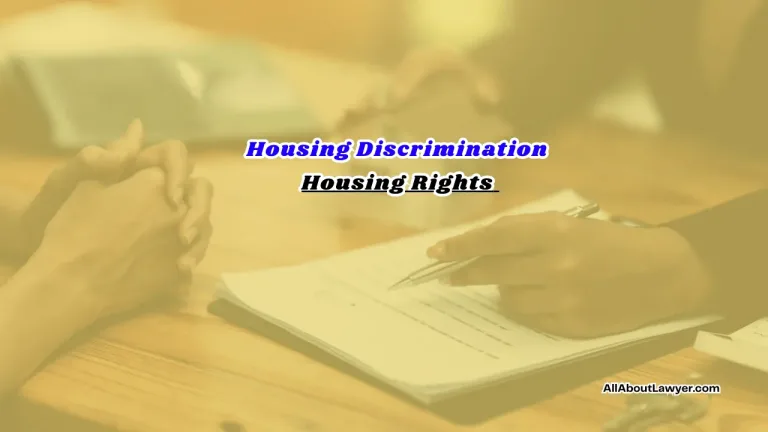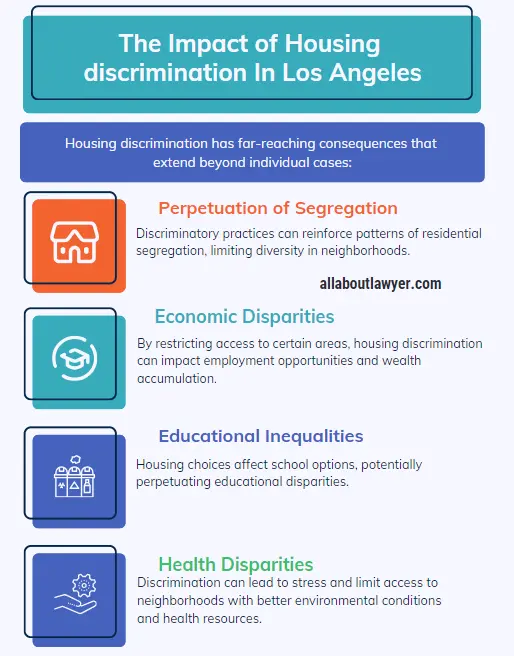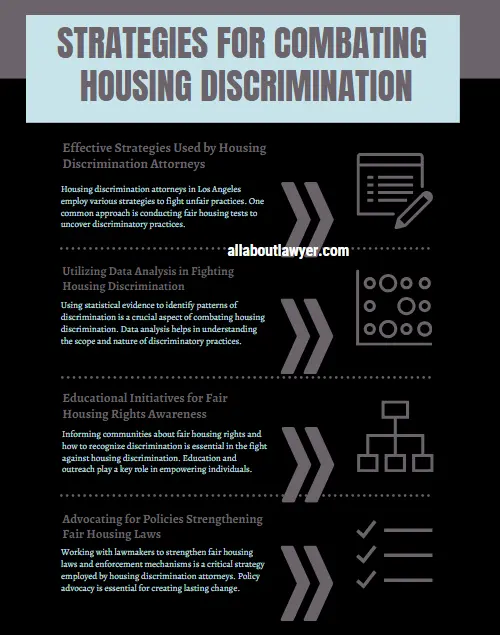Housing Discrimination Attorney In Los Angeles Fair Housing Rights
In the sprawling metropolis of Los Angeles, where diverse communities intertwine and the pursuit of the American dream is ever-present, the right to fair housing stands as a fundamental pillar of equality. However, despite progressive laws and societal advancements, housing discrimination continues to cast a shadow over the lives of many Angelenos. This is where the crucial role of a housing discrimination attorney in Los Angeles comes into play, serving as a beacon of hope and justice for those facing unfair treatment in the realm of housing.
Table of Contents
Understanding Housing Discrimination in Los Angeles
Housing discrimination occurs when an individual or family is treated unfairly in their quest to rent, buy, or finance a home based on their membership in a protected class. In Los Angeles, as in the rest of the United States, federal, state, and local laws prohibit such discriminatory practices. The Fair Housing Act, California’s Fair Employment and Housing Act, and various local ordinances form a robust legal framework designed to ensure equal access to housing opportunities for all.
Protected classes under these laws include:
1. Race and color
3. Religion
4. Sex (including gender identity and sexual orientation)
5. Familial status
6. Disability
7. Age
8. Source of income
9. Marital status
10. Ancestry
11. Genetic information
Despite these protections, discriminatory practices persist, often in subtle or covert forms that can be challenging to identify and prove without expert legal assistance.
The Role of a Housing Discrimination Attorney
A housing discrimination attorney in Los Angeles specializes in protecting the rights of individuals who have experienced unfair treatment in housing matters. These legal professionals play a multifaceted role in advancing housing justice:
1. Legal Consultation and Case Evaluation:
They assess the merits of potential discrimination claims, helping clients understand their rights and the strength of their cases.
2. Complaint Filing:
Attorneys assist in filing formal complaints with relevant agencies such as the Department of Housing and Urban Development (HUD) or the California Department of Fair Employment and Housing (DFEH).
3. Evidence Gathering:
They conduct thorough investigations, collecting and analyzing evidence to support discrimination claims.
4. Negotiation and Mediation:
Many cases can be resolved through skillful negotiation or mediation, potentially avoiding lengthy court battles.
5. Litigation Representation:
When necessary, these attorneys provide robust representation in court, advocating for their clients’ rights before judges and juries.
6. Policy Advocacy:
Beyond individual cases, many housing discrimination attorneys work to influence policy changes that promote fair housing practices on a broader scale.

Common Forms of Housing Discrimination in Los Angeles
Los Angeles, with its vast and diverse housing market, sees various forms of housing discrimination. Some prevalent issues include:
1. Rental Bias:
Refusing to rent to individuals based on their race, national origin, or other protected characteristics.
2. Discriminatory Advertising:
Using language in rental or sale listings that indicates a preference or limitation based on protected classes.
3. Steering:
Guiding potential buyers or renters to or away from certain neighborhoods based on their race or ethnicity.
4. Predatory Lending:
Offering unfair loan terms or denying mortgages based on an applicant’s race or national origin.
5. Disability Accommodation Denials:
Refusing to make reasonable accommodations for tenants with disabilities.
6. Familial Status Discrimination:
Imposing different rules or restrictions on families with children.
7. Sexual Harassment:
Subjecting tenants to unwelcome sexual advances or creating a hostile living environment.
8. Retaliation:
Taking adverse action against individuals who file fair housing complaints or assist others in exercising their fair housing rights.
The Legal Process From Complaint to Resolution
When facing housing discrimination in Los Angeles, the path to justice typically involves several steps:
1. Initial Consultation:
The process begins with a consultation with a housing discrimination attorney who evaluates the case and advises on the best course of action.
2. Filing a Complaint:
Depending on the circumstances, a complaint may be filed with HUD, DFEH, or directly in court. Each avenue has its own procedures and timelines.
3. Investigation:
The relevant agency or the attorney conducts an investigation, gathering evidence to support the discrimination claim.
4. Conciliation or Mediation:
Many cases enter a conciliation or mediation phase, where parties attempt to resolve the issue without going to court.
5. Administrative Hearing or Lawsuit:
If a resolution isn’t reached, the case may proceed to an administrative hearing or a lawsuit in state or federal court.
6. Trial and Judgment:
In court cases, evidence is presented, and a judge or jury determines the outcome.
7. Appeals:
Either party may appeal the decision if they believe legal errors occurred during the process.
Challenges in Proving Housing Discrimination
Proving housing discrimination can be complex, as discriminatory practices are often subtle or disguised. Common challenges include:
1. Lack of Direct Evidence:
Discriminators rarely admit their biases openly, making it necessary to rely on circumstantial evidence.
2. Pretext for Discrimination:
Landlords or sellers may offer seemingly legitimate reasons for their actions, masking discriminatory intent.
3. Disparate Impact Cases:
These cases, which focus on policies that have a disproportionate impact on protected groups, can be particularly challenging to prove.
4. Statute of Limitations:
There are strict time limits for filing housing discrimination complaints, which can be as short as one year from the alleged discriminatory act.
The Impact of Housing discrimination In Los Angeles
Housing discrimination has far-reaching consequences that extend beyond individual cases:
1. Perpetuation of Segregation:

Discriminatory practices can reinforce patterns of residential segregation, limiting diversity in neighborhoods.
2. Economic Disparities:
By restricting access to certain areas, housing discrimination can impact employment opportunities and wealth accumulation.
3. Educational Inequalities:
Housing choices affect school options, potentially perpetuating educational disparities.
4. Health Disparities:
Discrimination can lead to stress and limit access to neighborhoods with better environmental conditions and health resources.
5. Community Cohesion:
Unfair housing practices can erode trust and social cohesion within communities.
Strategies for Combating Housing Discrimination
Housing discrimination attorneys in Los Angeles employ various strategies to fight unfair practices:
1. Testing Programs: Conducting fair housing tests to uncover discriminatory practices.
2. Data Analysis: Using statistical evidence to identify patterns of discrimination.
3. Education and Outreach: Informing communities about fair housing rights and how to recognize discrimination.
4. Policy Advocacy: Working with lawmakers to strengthen fair housing laws and enforcement mechanisms.
5. Collaborative Efforts: Partnering with community organizations, civil rights groups, and government agencies to promote fair housing.

The Future of Fair Housing in Los Angeles
As Los Angeles continues to grow and evolve, the fight for fair housing remains crucial. Emerging issues such as gentrification, the impact of short-term rentals, and the housing affordability crisis present new challenges for fair housing advocates. Housing discrimination attorneys play a vital role in navigating these complex issues, ensuring that the promise of equal housing opportunity remains a reality for all Angelenos.
Conclusion
The work of housing discrimination attorneys in Los Angeles is essential in upholding the principles of equality and justice in one of America’s most diverse cities. By providing legal representation, advocacy, and education, these professionals help ensure that every resident has a fair chance at finding a place to call home. As we look to the future, the continued vigilance and dedication of housing discrimination attorneys will be crucial in creating a more equitable and inclusive housing landscape in the City of Angels.
FAQs
Q1: How do I know if I’ve experienced housing discrimination in Los Angeles?
A1: Signs of housing discrimination may include being told a property is unavailable when it’s still on the market, being offered different terms or prices than other applicants, or experiencing harassment or different treatment after moving in. If you suspect discrimination, document all interactions and consult with a housing discrimination attorney for a professional evaluation of your situation.
Q2: What should I do if I think I’ve been discriminated against in housing?
A2: If you believe you’ve faced housing discrimination, take the following steps:
1. Document everything, including dates, times, and details of interactions.
2. Keep all relevant paperwork, emails, and text messages.
3. Contact a housing discrimination attorney in Los Angeles for guidance.
4. File a complaint with HUD or the California Department of Fair Employment and Housing.
Q3: How long do I have to file a housing discrimination complaint in Los Angeles?
A3: In California, you generally have one year from the date of the alleged discrimination to file a complaint with the Department of Fair Employment and Housing (DFEH). For federal complaints with HUD, you have up to two years. However, it’s best to act quickly and consult with an attorney as soon as possible to ensure you meet all deadlines.
Q4: Can a landlord refuse to rent to me because I have children?
A4: No, refusing to rent to someone because they have children is illegal under both federal and California law. This falls under familial status discrimination. The only exception is for certain types of senior housing that meet specific legal requirements.
Q5: What remedies are available if I win a housing discrimination case?
A5: If you prevail in a housing discrimination case, potential remedies may include:
– Monetary damages for out-of-pocket expenses and emotional distress
– Injunctive relief (e.g., requiring the discriminating party to take or stop certain actions)
– Civil penalties
– Attorney’s fees and costs
– In some cases, punitive damages
The specific remedies available will depend on the circumstances of your case and the laws under which you file your complaint.
Visit All About Lawyer For more Articles.
About the Author

Sarah Klein, JD, is a former employment attorney who has advised clients on wrongful termination, workplace discrimination, wage disputes, and employee rights. At All About Lawyer, she writes practical, legally sound guides to help workers understand labor laws and stand up for fair treatment at work.
Read more about Sarah
